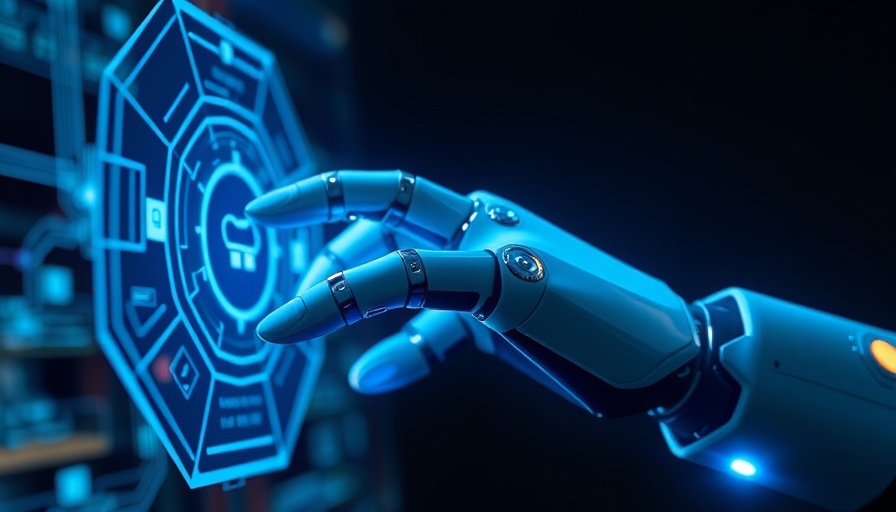
Meet Manus: A New Era of Fully Autonomous AI Agents
In a remarkable leap forward for technology, Chinese engineers have unveiled Manus, which they claim to be the world's first fully autonomous AI agent. Unlike traditional AI systems, which rely on human prompts to initiate tasks, Manus operates independently to handle real-world tasks without explicit human guidance. This groundbreaking development not only pushes the boundaries of AI technology but also poses profound implications for various sectors.
How Manus Operates: An Intricate System of Collaboration
Manus is not a standalone entity; it functions more like an executive managing several specialized sub-agents. This architecture allows Manus to handle complex workflows seamlessly. For example, when tasked with finding an apartment, it is capable of conducting thorough research, evaluating crime rates, weather patterns, and even market trends to provide tailored recommendations. Furthermore, Manus works asynchronously, meaning it can complete tasks in the background, notifying users only when results are ready. This is a considerable shift from typical AI models that require constant human input.
The Competitive Edge: China's Rapidly Advancing AI Landscape
The introduction of Manus signifies a pressing challenge to the narrative that the U.S. holds a monopoly over advanced AI development. As noted in recent tech discussions, China's advancements in AI have been significant, especially following the launch of DeepSeek, which was described as a "Sputnik moment" for the industry. With Manus, experts suggest China is not only catching up but may have leapfrogged ahead in creating truly autonomous AI agents. This brings the question: how will leading tech companies in Silicon Valley respond?
Ethical Implications and Job Displacement
While the launch of Manus opens the door to exciting technological possibilities, it also raises serious ethical and regulatory questions. The potential for job displacement is a real concern, as technologies like Manus could replace human roles in various industries such as recruitment and software development. Who would be held responsible for errors made by an autonomous AI agent? These vital discussions will shape the future of AI deployment in society.
Real-World Applications: Where Manus Could Lead Us
Manus boasts a variety of potential applications from creating professional websites to providing comprehensive analyses of stock trends. For example, it could autonomously handle recruitment by analyzing resumes against current job market conditions and proposing the best candidates with thorough reporting. Imagine a system that could sort through thousands of applications and deliver concise, optimal hiring strategies in mere seconds. Such capabilities are not far-off; they are realities that Manus aims to achieve.
A Glimpse into the Future of AI Agents
The era of autonomous AI agents appears to be on the horizon, prompting excitement and apprehension in equal measure. With technologies like Manus now emerging, it's crucial for society to engage with the conversations surrounding ethics, responsibility, and the role of humans in an increasingly automated world. The shift towards self-sufficient AI systems will likely require new regulations and responses at a global level.
Conclusion: Embrace the Future of AI
The development of Manus represents a significant advance in AI technology, heralding new possibilities while also prompting critical discussions on responsibility and ethics. As we stand on the brink of a new frontier in AI, it’s essential to embrace the transformative potential that these autonomous systems bring, while also considering the social implications they carry. How will you adapt to these changes in your industry and personal lives?
 Add Row
Add Row  Add
Add 




 Add Row
Add Row  Add
Add 

Write A Comment